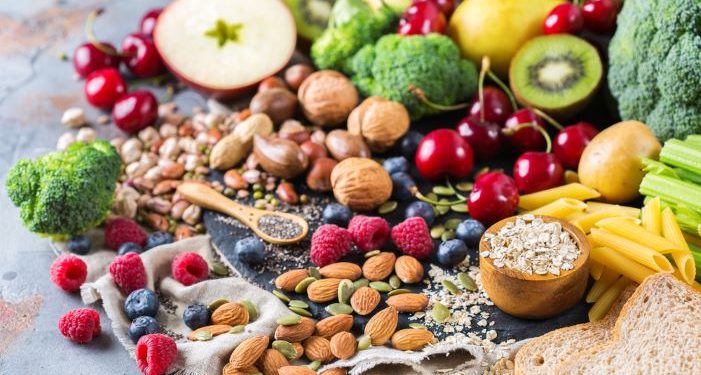Ann Arbor (US): Have you ever wondered why only hummingbirds sip nectar from feeders?
Unlike sparrows, finches and most other birds, hummingbirds can taste sweetness because they carry the genetic instructions necessary to detect sugar molecules.
Like hummingbirds, we humans can sense sugar because our DNA contains gene sequences coding for the molecular detectors that allow us to detect sweetness.
But it is more complex than that. Our ability to sense sweetness, as well as other tastes, involves a delicate dance between our genetic makeup and the foods we encounter from the womb to the dinner table.
Neuroscientists like me are working to decipher how this intricate interplay between genes and diet shapes taste.
In my laboratory at the University of Michigan, we are diving deeply into one specific aspect, which is how consuming too much sugar dulls the sense of sweetness. Taste is so central to our eating habits that understanding how genes and the environment shape it has crucial implications for nutrition, food science and disease prevention.
The role of genes in sensing taste
As with hummingbirds, the human ability to discern what food tastes like depends on the presence of taste receptors.
These molecular detectors are found on the sensory cells, which are housed inside the taste buds, the sensory organs on the surface of the tongue.
The interactions between taste receptors and food molecules give rise to the five basic taste qualities: sweetness, savoriness, bitterness, saltiness and sourness, which are transmitted from the mouth to the brain via specific nerves.
For instance, when sugar binds to the sweet receptor, it signals sweetness. Our innate preference for the taste of some foods over others is rooted in how the tongue and the brain became wired during our evolutionary history.
Taste qualities signaling the presence of essential nutrients and energy, like salt and sugar, send information to brain areas linked to pleasure. Conversely, tastes that alert us to potentially harmful substances, such as the bitterness of certain toxins, are connected to those that make us feel discomfort or pain.
While the presence of genes encoding for functional taste receptors in our DNA allows us to detect food molecules, how we respond to these also depends on the unique combination of taste genes we carry. Like ice cream, genes, including those for taste receptors, come in different flavours.
Take, for instance, a taste receptor for bitterness called TAS2R38. Scientists found small changes in the genetic code for the TAS2R38 gene among different people.
These genetic variants affect how people perceive the bitterness of vegetables, berries and wine.
Follow-up studies have suggested a link between those same variants and food choice, particularly with respect to vegetable and alcohol consumption.
Many more variants exist in our gene repertoire, including those for the sweet taste receptor.
However, whether and how these genetic differences affect our taste and eating habits is still being worked out. What is certain is that while genetics lays the groundwork for taste sensations and preferences, experiences with food can profoundly reshape them.
How diet influences taste
Many of our innate sensations and preferences are molded by our early experiences with food, sometimes before we’re even born.
Some molecules from the mother’s diet, like garlic or carrots, reach the fetus’s developing taste buds via the amniotic fluid and can affect the appreciation of these foods after birth.
Infant formula can also influence food preferences later on. For example, research shows that infants fed with formulas that are not based on cow’s milk – which are more bitter and sour because of their amino acid content – are more accepting of bitter, sour and savory foods such as vegetables after weaning than those who consume cow milk-based formula.
And toddlers who drink sweetened water strongly prefer sweet beverages as early as age 2.
The effect of food on our taste predispositions doesn’t stop in early life: What we eat as adults, especially our sugar and salt intake, can also shape how we perceive and potentially choose food.
Cutting down on sodium in our diet decreases our preferred level of saltiness, whereas consuming more makes us like saltier foods.
Something similar occurs with sugar: Reduce sugar in your diet and you may find food sweeter.
Conversely, as research in rats and flies suggests, high sugar levels may dull your sensation of sweetness.
Although we researchers are still working out the exact how and why, studies show that high sugar and fat intake in animal models dampens the responsiveness of taste cells and nerves to sugars, modifies the number of taste cells available and even flips genetic switches in the taste cells’ DNA.
In my lab, we’ve shown that these taste alterations in rats return to normal within weeks when the extra sugar is removed from the diet.
Illness can also influence taste Genetics and food aren’t the only factors that affect taste.
As many of us discovered during the height of the COVID-19 pandemic, disease can also play a role. After testing positive for COVID-19, I couldn’t tell the difference between sweet, bitter and sour foods for months.
Researchers have found that about 40 per cent of people infected with SARS-CoV-2 experience impairment in taste and smell. In about 5 per cent of those people, these taste deficits persist for months and years.
Although researchers don’t understand what causes these sensory alterations, the leading hypothesis is that the virus infects the cells that support the taste and smell receptors.
Training taste buds for healthier eating
By shaping our eating habits, the intricate dance between genes, diet, disease and taste can affect the risk for chronic diseases.
Beyond distinguishing food from toxins, the brain uses taste signals as a proxy to estimate the filling power of foods. In nature, the stronger a food tastes – in terms of sweetness or saltiness – is directly connected to its nutrient levels and calorie content.
For example, a mango contains five times the amount of sugar than a cup of strawberries, and this is why it tastes sweeter and is more filling.
Thus, taste is important not just for food enjoyment and choice, but also for regulating food intake.
When taste is altered by diet or disease, sensory and nutrient information could become “decoupled” and no longer provide accurate information to our brains about portion size. Research shows this may also occur with consumption of artificial sweeteners.
And indeed, in recent studies in invertebrate animal models, our lab discovered that the changes in taste caused by high dietary sugar intake drove higher eating by impairing these food predictions.
Notably, many of the eating patterns and brain changes we observed in flies have also been discovered in people who ate foods high in sugar or fat or who had high body-mass index.
This raises the question of whether these effects also arise from taste and sensory alterations in our brains.
But there is a silver lining to the adaptable nature of taste. Since diet shapes our senses, we can actually train our taste buds – and our brains – to respond and prefer foods with lower quantities of sugar and salt.
Interestingly, many people already say that they find foods overly sweet, which may not be surprising since between 60 per cent to 70 per cent of grocery store foods contain added sugar.
Reformulating foods tailored to our genes and the plasticity of our taste buds could be a practical and powerful tool to enhance nutrition, promote health and decrease the burden of chronic disease.
The Conversation






































